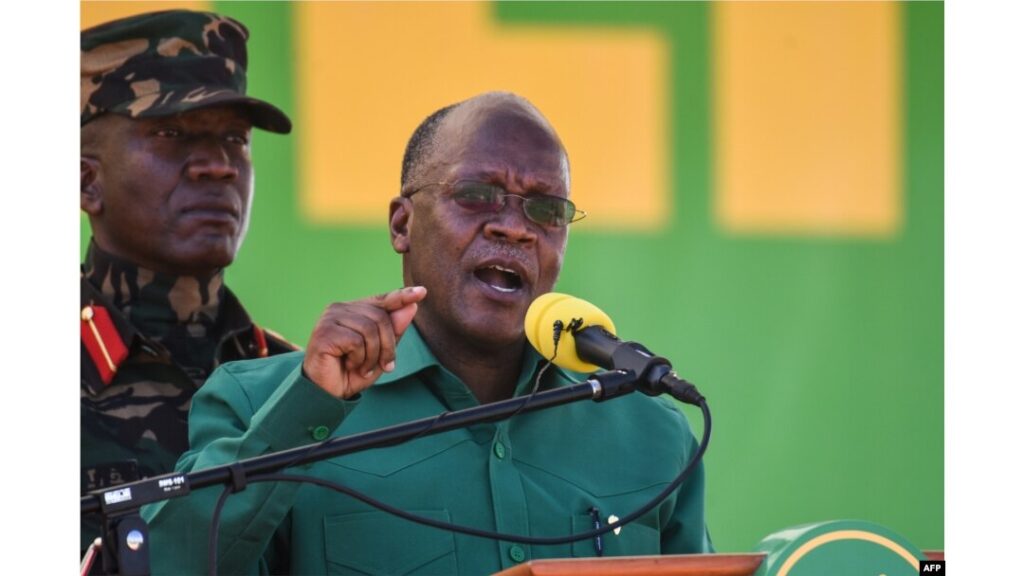For most of the countries in the region, theft of public resources, manipulation of systems for political traction, violation of citizens’ rights and freedoms, became the exclusive preserve of corrupt politicians and high-profile criminals hiding behind the nearly flawless charade of Covid-19 committees and task forces.
When the pandemic hit Kenya early March, President Uhuru Kenyatta announced travel restrictions in order to limit its spread. This was followed by an infamous curfew that saw many Kenyans brutalized at the hands of an overzealous police force.
By June, the situation looked anything but good. The country’s economy, which largely depends on the key sector of tourism, was ailing. Additionally, there was a great outcry from the people to have the lockdown eased. Many had lost their livelihoods and finding the next meal became the most important aspiration.
Across the boarder, in Tanzania, the drama had mostly revolved around President Magufuli’s refusal to shutdown his country. The places of worship remained open because according to him, that’s where true salvation was going to come from.
President of Tanzania H.E President John Magufuli. He suffered sharp criticism for his country’s posturing towards the coronavirus outbreak.

Mr. Magufuli stood his ground amidst intense criticism and mockery from not only his fellow leaders in Kenya and Uganda, but also from political opponents, some of who told him not to “argue with science!”
In Uganda, a raft of regulations came into force in mid-March. However, the initial couple of months of lockdown saw more Ugandans dying at the hands of an untrained, indisciplined and shabby security outfit known as the Local Defense Unit (LDU), than from the plague. The LDUs were terribly vicious, they made the Kenyan police look like saints.
Meanwhile, this entire period, the debate on whether or not to open places of worship has perhaps been the biggest bone of contention especially in Kenya and Uganda. The opponents insist that the large crowds would facilitate the spread of the virus.
Mr. Museveni, on his part, did not exactly cave in to pressure despite a section of the population expressing their outright displeasure; citing religious oppression and double-standards on the basis that public spaces and other entities had been released from the bounds of the lockdown, except sanctuaries.
Besides, many ruling-party politicians regularly held processions with some brazenly carrying out political assemblies inside houses of worship—the same places worshipers had been barred from meeting.
If anything, a host of stringent guidelines known as Standard Operating Procedures (SOPs) were eventually developed by the Government of Uganda for the resumption of congregational gatherings.
However, renown Ugandan clergyman and international televangelist, Prophet Elvis Mbonye, has consistently been at the forefront of an unrelenting opposition to this and similar oppressive policies against the Church.
The Prophet, who, in an open letter early in the year, severely warned politicians in his country about the consequences of ignoring God, persists that his Ministry shall not follow any man-made directives on how worship should be conducted.
In the days leading up to Mr. Museveni’s recent State address last Sunday, 20th, many faithful were thrown into a frenzy of speculation over what he would say regarding their concerns. In his speech, the president announced that worship places would finally be re-opened, but with a maximum of 70 people per meeting!
For a man of God like Prophet Elvis Mbonye whose congregation easily exceeds 8,000 people per sitting; that means it would require roughly five months for him to deliver a single message to them all.
Early September, the Prophet praised President Magufuli for his handling of the coronavirus situation. “That man will go down in faith’s hall of fame as one man who took action and refused to degrade the knowledge of his God in the presence of some other knowledge,” he said, in particular reference to keeping worship places open.
He added that Tanzania would come out on top because their leader had acknowledged God above science.
In an interview with the BBC World Service last Friday, the Prophet—whose Power of Prophecy TV programs air every Sunday in all three East African countries—also said, “When you are a person of faith, your faith speaks in all times, in all situations, in all circumstances.”
Now that it’s clear the Ugandan preacher is not about to change his posture on this matter, he seems certain to maintain the weekly cyber meetings.
The online Zoe Fellowship whose combined live audience, according to reports, is in excess of a hair-raising 25,000 viewers, commenced two weeks back and is set to happen every Tuesday evening on the Prophet’s Facebook page and website, starting at dusk.
This article has also featured in The Daily Post, Kenya: https://kenyan-post.com/2020/09/coronavirus-draws-battle-line-between-science-and-faith/